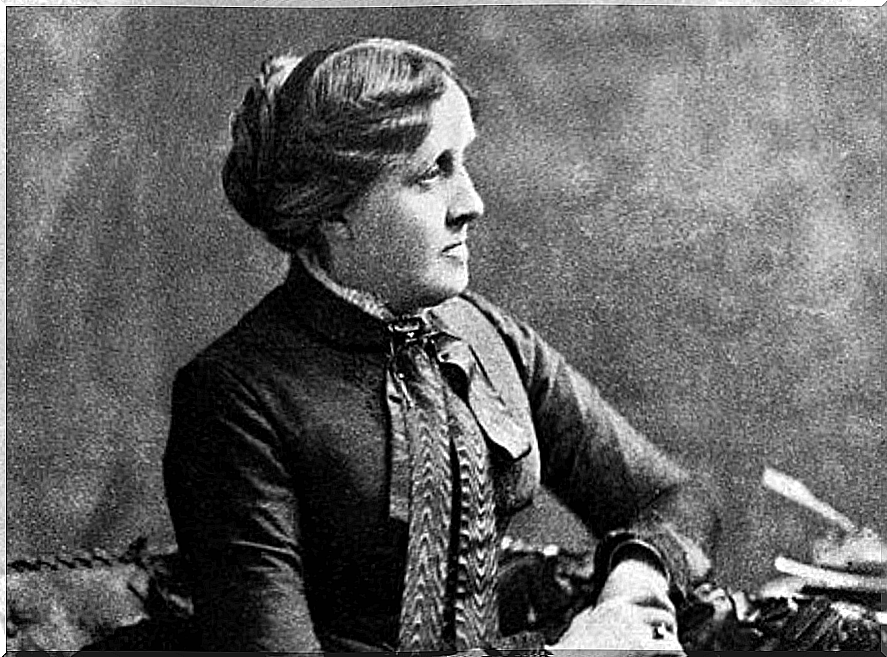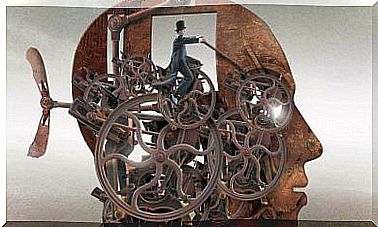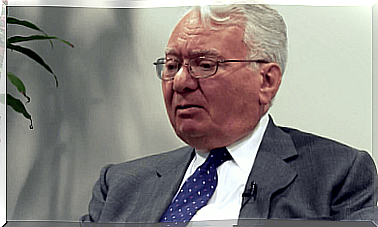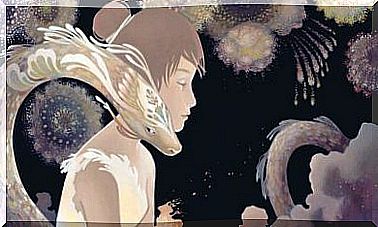Louisa May Alcott, Biography Of A Nonconformist Writer

Louisa May Alcott was the author of the famous novel Little Women , a literary work that marked an entire era and still arouses interest today. The work has been translated into more than 50 languages and its success can be measured in the countless films that have adapted the novel over time.
Little Women became a milestone, not only because it is wonderfully written, but also because of the great realism that is in each of its lines.
When this work appeared, the feminine presence in literature was quite residual or overshadowed by the masculine. In addition, Little Women moved away from romanticism and immersed itself in realism, in an everyday and feminine reality. That is why Louisa May Alcott’s novel was immediately successful: it was unlike anything that was circulating at the time.
For the rest, the work reflects well-founded ideas and values, in which the woman makes an appearance as a thinker and constructor of her destiny, something that was completely revolutionary at the time. The author’s abolitionist and radically democratic ideas are also seen behind the scenes.

Louisa May Alcott and a special family
Louisa May Alcott was born on November 29, 1832 in Germantown (Pennsylvania, United States). She was the second of four sisters, all of them women, since her only male brother passed away at a very young age.
It is not uncommon for her to become an enlightened and independent woman, as her father was a famous educator far ahead of his time.
His father was Amos Bronson Alcott, a teacher, writer, and transcendentalist philosopher. His mother, Abigail, was a determined and restless woman. For this reason, Louisa May Alcott grew up in a very stimulating environment from an intellectual and artistic point of view.
It was his own father who devoted himself fully to educating his daughters, who were studying at home. He was a man who saw education as a liberating process, whose function was, mainly, to teach how to think. This perspective was very revolutionary for a time when instruction based on memory and discipline prevailed.
The transcendentalist philosophy
Louisa’s father belonged to the transcendentalist movement, a philosophy deeply imbued by religion, in which reflection on the deepest aspects of man was fundamental. He stood out as a pedagogue, especially through a school founded by him and inspired by progressive pedagogy .
In this man’s school there were microscopes, rulers, and other attachments, tending to offer an education based on evidence rather than memory. Because he decided to accept African American students, his school was closed.
Amos Alcott also firmly believed in the equality of women and was convinced that she should be given the right to vote. For this reason, she encouraged Louisa May Alcott to dedicate herself as a child to what would be her great passion: writing.
She also made decisions that probably influenced the imagination of the future writer. He created a utopian community at Harvard, which he named Fruitland. It was a group that lived in a remote place and ate only plant products out of respect for animals.
Poverty was the main protagonist and the experiment did not last long, since scarcity forced to search for new horizons.

A successful writer
Louisa May Alcott held different jobs, such as governess, seamstress, and nurse during the Civil War. He also began writing and publishing in women’s magazines in his youth.
His goal was to help with the finances of the home, although his father always insisted on doing what he loved, above money.
He wrote his play Little Women reluctantly. By then, he had already produced several novels, almost all of them suspense. That was the genre she was really passionate about. However, the publisher Thomas Nile told her about his interest in a work that was directed to the young women of the time. In this way, Louisa undertook the task of writing it, much to her regret.
The play was a success from the start. It was written in just two months and in the first two weeks after its publication, it had already sold more than 2,000 copies. From then on, sales continued to grow to this day. Louisa May Alcott became a famous and wealthy woman, who managed to lift her family out of poverty.
The writer never married. When her mother died, she remained in charge of the family, until her death on March 6, 1888. It is said that Little Women was, above all, an autobiographical work. It went down in history as one of those novels that know how to capture the essential and that, for the same reason, never go out of style.









